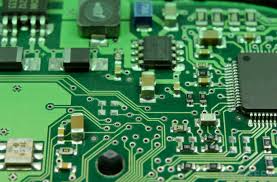Core Functionality of Microcontroller Units
A Microcontroller Unit (MCU) is a compact integrated circuit designed to govern a specific operation in an embedded system. Typically, MCUs are embedded in devices that require control, monitoring, or altering based on incoming data. They are fundamental in applications ranging from home appliances to advanced automotive systems.
MCUs: The Brain Behind the Operation
Versatility and Processing Power
At its core, an MCU incorporates a processor unit, memory (both RAM and ROM), and input/output peripherals on a single chip, which distinguishes it from other types of processors that require additional chips for these functions. This integration allows for increased versatility and reduced size, making MCUs ideal for portable devices. For instance, the processing power of MCUs can range widely, with simpler models running at just a few MHz, while more advanced ones can operate at over 300 MHz.
Cost-Effectiveness and Energy Efficiency
MCUs are celebrated for their cost-effectiveness. The integration of multiple functions onto a single chip reduces the overall manufacturing costs of electronic devices. Furthermore, they are designed to be energy-efficient, which is crucial for battery-operated devices. Typical MCUs can operate on just a few milliwatts of power, and advanced power-saving modes allow for even lower consumption during idle times.

Real-World Applications
MCUs play a critical role in the modern world. They are the driving force behind the majority of smart devices, from household items like washing machines and microwaves to complex systems in automobiles and medical devices. The ability of an MCU to process data inputs from sensors and execute predefined tasks makes them indispensable in the era of the Internet of Things (IoT).
Selecting the Right MCU
When choosing a microcontroller unit for a project, several factors must be considered. These include clock speed, memory size, the number of input/output pins, and compatibility with other devices or systems. It's also crucial to consider whether the MCU is open-source, which can affect software development and customization.
MCUs: Enabling Smarter Technology
In essence, MCUs provide the smart functionality in today's electronics by allowing sophisticated control, processing, and interfacing in compact devices. Their ability to handle multiple tasks simultaneously while consuming minimal power contributes significantly to the ongoing innovation in technology.
For a deeper understanding of MCUs and their impact on modern technology, explore detailed insights at microcontroller unit. This resource delves into the technical aspects and applications of MCUs, offering valuable information for both newcomers and seasoned engineers in the field.